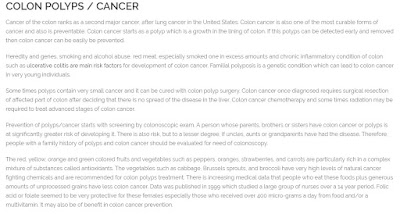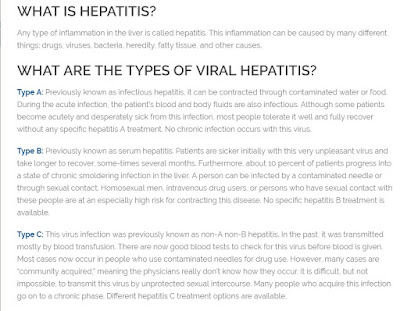 |
| Treatment for Colon Cancer – GI Endoscopy Practice in NJ |
In the early stage, there are no visible symptoms of Colon Cancer. That’s why it is important to have the tests recommended by the doctor so that the disease can be treated at early stage. When you start experiencing symptoms, these might include sudden change in bowel movements such as constipation or diarrhea, bleeding or cramping in rectum, bloating or feeling discomfort in belly, weight loss, fatigue, loss of appetite, feeling that your bowel isn’t empty or sudden need for another bowel movement and pelvic pain. If you experience any of these symptoms then take it serious and consult the doctor immediately in order to diagnose the exact problem. Our physicians will discuss your condition in detail then suggest proper exam for diagnosis such as Colonoscopy. We, at GI Endoscopy Practice have expertise to perform highly reliable exams in the best manner using advanced equipment and state-of-the-art facilities. Contact us now!
 |
| COLON / POLYPS |
At first, the doctor determines the treatment plan for Colon Cancer according to the stage of the Cancer and condition of patient. Generally, the treatment for Colon Cancer involves surgery, chemotherapy and radiation therapy. The surgery performed according to the stage of Cancer. Small cancerous polyps can be removed during Colonoscopy at early stage and blockage of Colon can be relieved at advanced stage surgery. During Chemotherapy, different drugs can be used that destroy cancerous cells. During radiation therapy, X-rays are used to kill cancer cells. Both Chemotherapy and Radiation therapy recommended after the surgery to avoid recurrence of the disease. The GI Endoscopy Practice physicians recommend the appropriate treatment option keeping in view the condition of the patient. Detailed consultation and diagnosis exams help our doctors to devise a treatment that cures your disease. For a proper treatment plan, contact our specialists in New Jersey.


